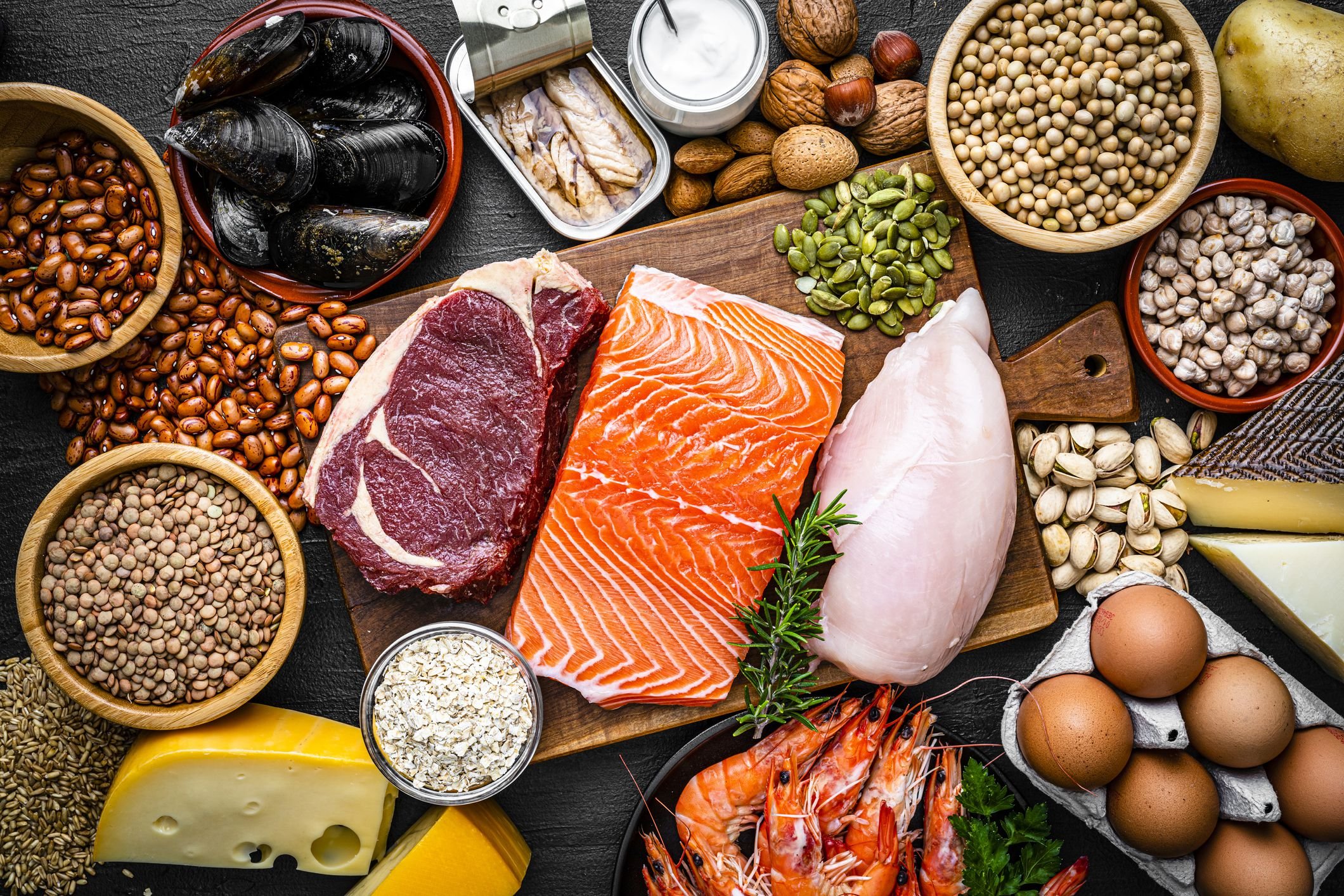Types of Protein
There are two main types of protein in the diet, animal proteins (meat, fish, eggs, dairy) and plant proteins (beans, lentils, nuts, seeds, and grains). Regardless of your approach, it is completely possible to gain muscle and live a healthy life eating plant and/or animal based. The one caveat is that animal-based proteins are rich in all nine essential amino acids making them “complete proteins”, while most plant-based sources are considered “incomplete’' as they lack one or more essential amino acids. However, there are a few complete plant proteins, including: soy, quinoa, buckwheat, hemp seeds, chia seeds, amaranth, seitan and spirulina. Furthermore, when combined, many incomplete plant-based proteins can become complete. An example of this is rice and beans, or nuts and lentils.
There are 20 unique amino acids that create every protein known to man. Among these, nine are considered essential amino acids (EAAs) as they must be obtained through food. These protein compounds are often referred to as the “building blocks” of the body, as protein is responsible for maintaining and repairing tissues - a key feature of muscle growth (source).
Leucine: One of the more important for muscle building as it helps the body make proteins and growth hormones which influence tissue repair and growth. This is a key factor of wound healing and stimulating muscle protein synthesis.
Isoleucine: Heavily involved in muscle metabolism and immune function, while assisting in the production of hemoglobin and energy regulation.
Methionine: An amino acid that is lower in plant-based diets (legumes) but crucial for tissue growth, metabolism, and detoxification. Methionine also assists in the absorption of essential minerals like zinc and selenium.
So even if you’re a fully raw-vegan, you can still put on muscle mass - it just takes a little more intention and planning to ensure you’re getting the nutrients your muscles need.
Why We Need Protein
With over 10,000 proteins working throughout our bodies, there is almost no function that doesn’t require a protein. Building new muscle tissue, transporting nutrients in the blood, enzymatic breakdown of foods, and hormone production - all require adequate protein intake to make possible (source).
When protein intake is not adequate, the body has to make sacrifices. In an attempt to maintain muscle mass, the body cuts down on certain “non-essential” functions. Acute signs of protein deficiency are: thin hair, brittle nails, low energy levels, frequent illnesses, and much more. On a deeper level, we see low iron stores, vitamin deficiencies, and irregular hormone regulation. All of this can be avoided by getting adequate protein day in and day out. So how does that look..?
DETERMINING YOUR NEEDS
“Adequate” vs. “Effective” Intake
General research recommends we consume about 0.8g/kg (grams of protein per kilogram of body weight) of protein per day to achieve adequate protein intake. However, those who train hard, are looking to build muscle and perform better will have increased protein needs - somewhere around 1.6-2.2g/kg of body weight per day is optimal for this population (source). I consider this to be an effective protein intake. While it may be high, it is an easy way to guarantee that you are providing your muscles with a surplus of protein and amino acids. This will ensure tissue growth, while maintaining other essential bodily functions like those mentioned above.
Use this calculator to determine your “effective” protein needs at 1.6g/kg.



